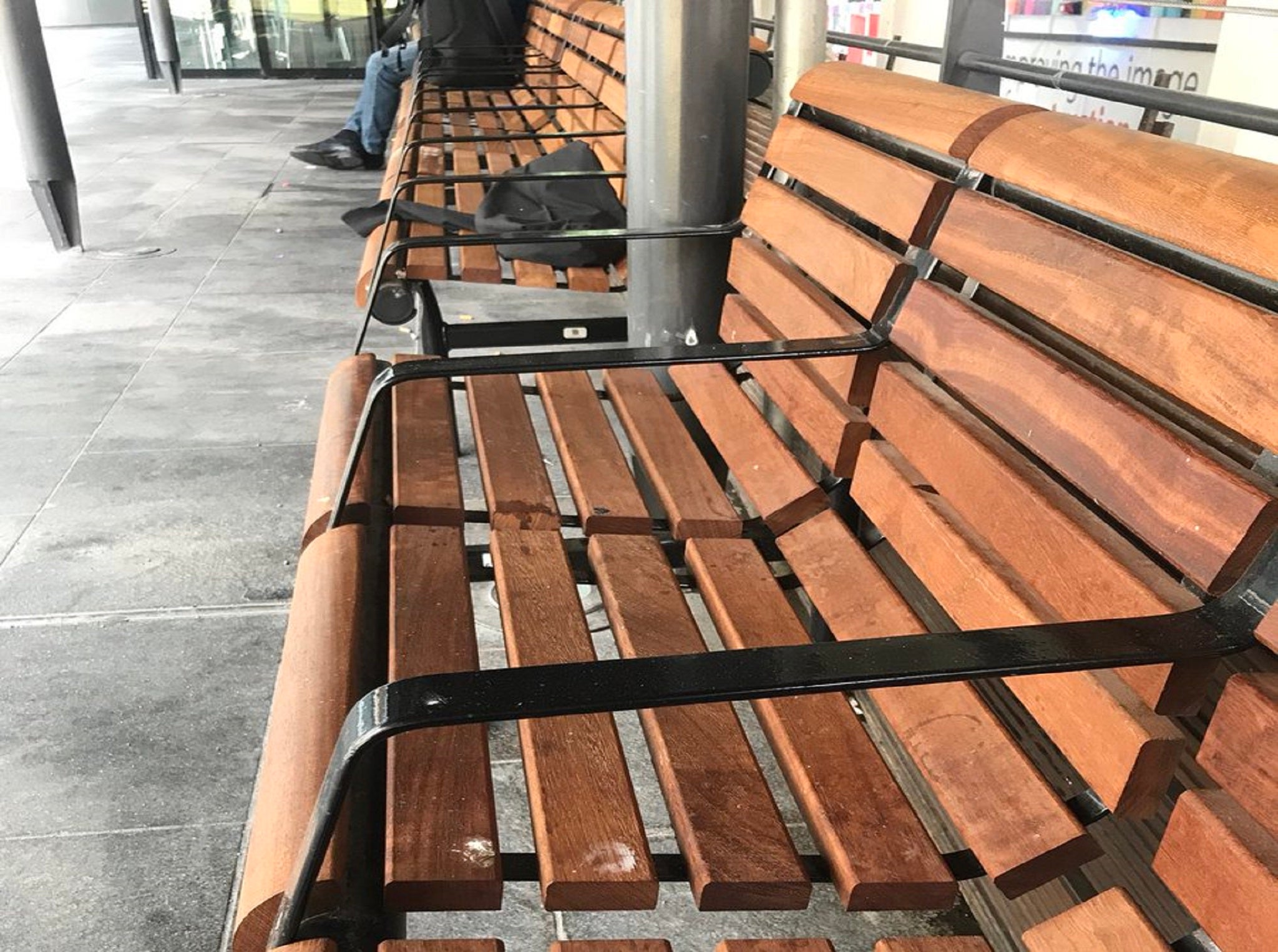Students call on London School of Economics to remove ‘anti-homeless’ benches from campus
'It is outrageous that LSE would install these benches, designed to exclude vulnerable populations'

Your support helps us to tell the story
From reproductive rights to climate change to Big Tech, The Independent is on the ground when the story is developing. Whether it's investigating the financials of Elon Musk's pro-Trump PAC or producing our latest documentary, 'The A Word', which shines a light on the American women fighting for reproductive rights, we know how important it is to parse out the facts from the messaging.
At such a critical moment in US history, we need reporters on the ground. Your donation allows us to keep sending journalists to speak to both sides of the story.
The Independent is trusted by Americans across the entire political spectrum. And unlike many other quality news outlets, we choose not to lock Americans out of our reporting and analysis with paywalls. We believe quality journalism should be available to everyone, paid for by those who can afford it.
Your support makes all the difference.Students are calling on the London School of Economics and Political Science (LSE) to remove “anti-homeless” benches from outside the library, which prevent people sleeping there.
The new benches – which now include metal armrests – were recently installed on the university’s campus in central London to reduce the risk of “threats and anti-social behaviour”, LSE has said.
But students have described the move as “outrageous” in an online petition which calls for the benches to be removed and replaced with alternatives that give rough sleepers a sheltered place to sleep.
Cara Leavey, an LSE masters student who is studying inequalities and social science, first highlighted the issue on Twitter, saying homeless people would no longer be able to take shelter at night.
Speaking to The Independent, Ms Leavey said rough sleepers used to rest on the old flat benches near the library at night, and were “not doing anything troublesome”.
“During the winter, there were a lot more homeless people who were sleeping on those benches. A lot of people were really upset to see how many rough sleepers there were in the area,” she said.
A group of students gave food, clothes, sleeping bags and blankets to homeless people in the winter, when temperatures plummeted and snow hit London. “Both professors and students felt really passionate about this,” Ms Leavey added.
The petition – signed by hundreds of people – says the LSE “claims to work towards the ‘betterment of society’, but the implementation of anti-homeless benches outside the library is anything but.”
It adds: “As a university which claims to care about alleviating inequality and addressing social and economic challenges, it is outrageous that LSE would install these benches designed to exclude vulnerable populations.”
Students have also written a draft letter to senior staff at LSE expressing their “disappointment and anger” at the Russell Group university’s decision to introduce “hostile seating” for rough sleepers.
An LSE spokesperson told The Independent: “The safety of our staff and students is paramount.
“We received a number of reports from LSE staff and students who were threatened and abused by members of the public gathering on the benches outside the library. This is in addition to extreme anti-social behaviour in the area.
“The risk posed to the LSE community had become unacceptable and changes were made to attempt to reduce the incidence of further threats and anti-social behaviour.”
The spokesperson added: “We will review these measures to determine whether they are appropriate.”
Earlier this year Bournemouth Council said it would remove metal bars from benches after receiving a backlash from tens of thousands of people.
British rapper Professor Green led the protest against the bars, describing them as “inhumane” and posting a video on social media showing his friend removing one from a public bench in the city.
Join our commenting forum
Join thought-provoking conversations, follow other Independent readers and see their replies
Comments